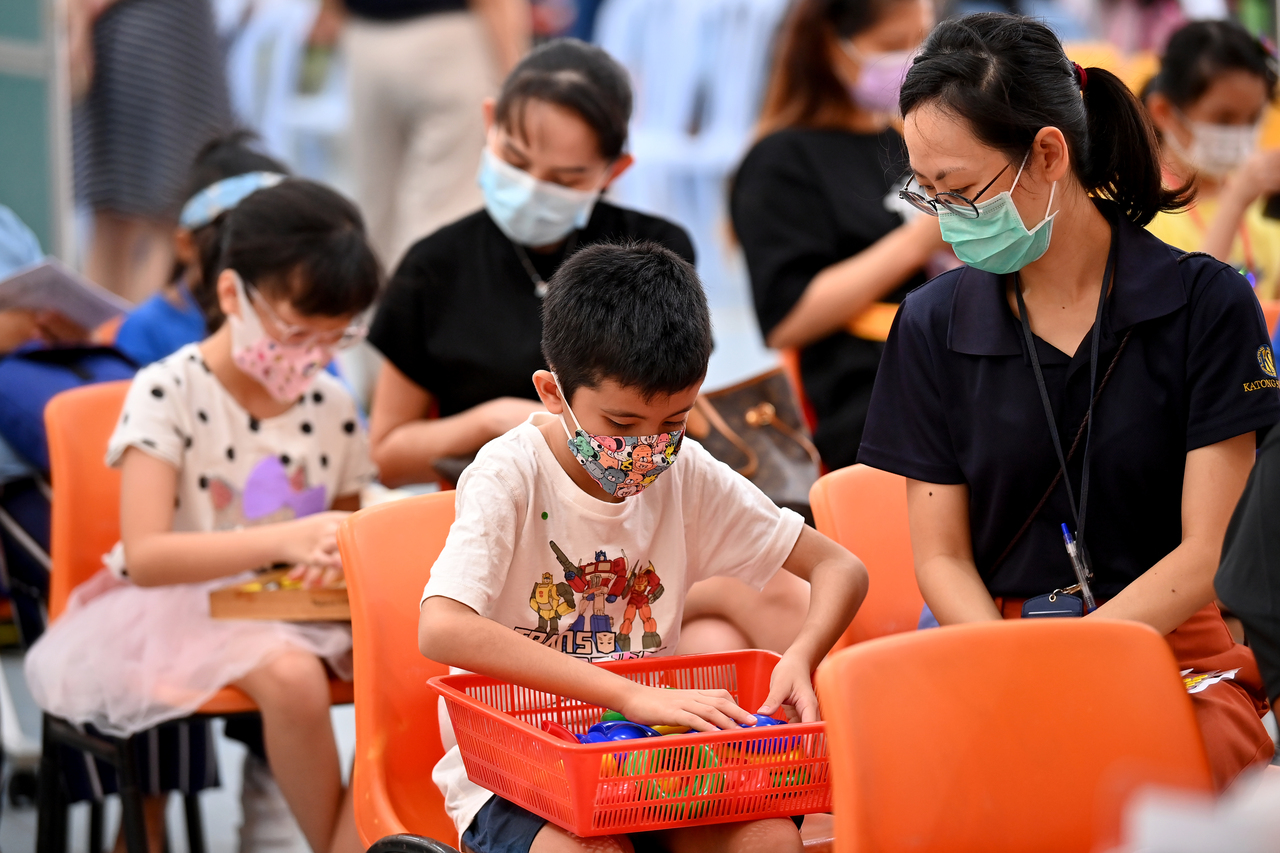Support for caregivers of those with special needs available beyond schools
Sign up now: Get ST's newsletters delivered to your inbox

The Early Childhood Development Agency is also developing a guide for parents of pre-school-aged children who require early intervention.
ST PHOTO: LIM YAOHUI
SINGAPORE - Caregivers of people with special needs or disabilities can find support beyond the school setting, said Minister for Social and Family Development Masagos Zulkifli in Parliament on Monday (Feb 14).
He was responding to questions from Mr Don Wee (Chua Chu Kang GRC), Mr Dennis Tan (Hougang) and Nominated MP Shahira Abdullah on measures to support caregivers of such people in aspects such as mental health and respite care.
The parliamentary questions come after two 11-year-old boys with special needs were found dead in a canal in Upper Bukit Timah in January. The father of the twins has been charged with murder.
On Monday, Mr Masagos said there is an online Enabling Guide, a resource portal by SG Enable.
The Ministry of Social and Family Development and SG Enable also work with social service agencies to increase awareness of services on offer, from as early as when children are diagnosed with special needs at birth or as they develop.
"This is also the opportunity to begin better equipping caregivers of such young children," he said.
For example, SG Enable runs a Start Right workshop twice a month, to provide information on early intervention, the Early Intervention Programme for Infants and Children (Eipic), strategies for caregivers to engage their children at home, as well as available community resources and support.
The Early Childhood Development Agency is also developing a guide for parents of pre-school-aged children who require early intervention, expected to be ready by April.
It will include information on developmental needs, ways to access early intervention services, support available to facilitate the child's transition from the pre-school years to school-age provisions, as well as self-care strategies and resources, said Mr Masagos.
Care services available include special student care centres that provide before and after school care, day activity centres and children and adult disability homes.
Mental health support available include hotlines as well as caregiver community outreach teams that aim to provide emotional support for caregivers of people with mental health conditions, who have or are at risk of developing mental health issues.
"Supporting caregivers requires many helping hands. It is a whole-of-society effort involving not just the Government, but the community as well," said Mr Masagos, citing Project 3i, which is under the SG Together Alliance for Action for Caregivers of Persons with Disabilities.
The project, started by caregiver support charity CaringSG, aims to connect caregivers with others in the community, provide befriending and peer mentorship by trained caregivers, and provide caregivers and families with complex needs with advisory support from professional volunteers.
Ms Denise Phua (Jalan Besar GRC), who is also president of the Autism Resource Centre, said there are many groups doing similar work linked to caregiver support, and asked if these efforts can try and prevent overlaps for better outcomes.
Mr Masagos said: "Certainly coordination must be made... We want (these efforts) to thrive, we want them to progress, but we also have to be careful about over-organising them."
He added that there are now better services on offer, and earlier too, but there will always be parents who do not get engaged early enough, or are unable to be identified through existing institutions.
In these cases, families, neighbours and the community can reach out to them or put them in touch with the relevant support services, said Mr Masagos.
Mr Ang Wei Neng (Jurong GRC) suggested a registry of caregivers of people with disabilities to be able to proactively reach out to them for help.
Mr Masagos said the Alliance for Action for Caregivers of Persons with Disabilities is now gathering feedback that is expected to be completed by this year, and the suggestion on a registry will be considered.
He said: "My view is that we want to ask the caregivers and see whether this will help them and how we can help them at the same time, and also (provide) enough protection for the confidentiality if they want."


